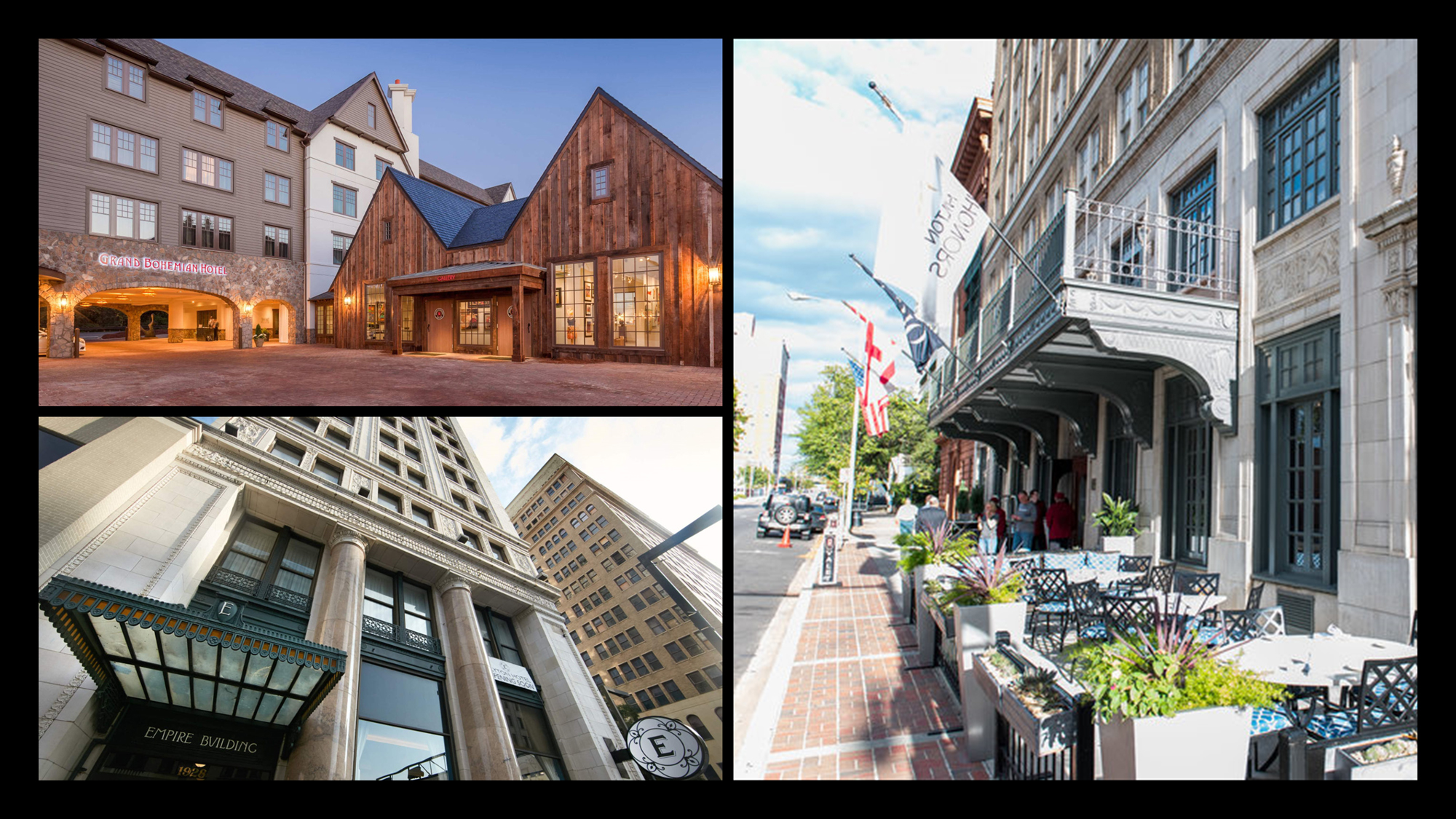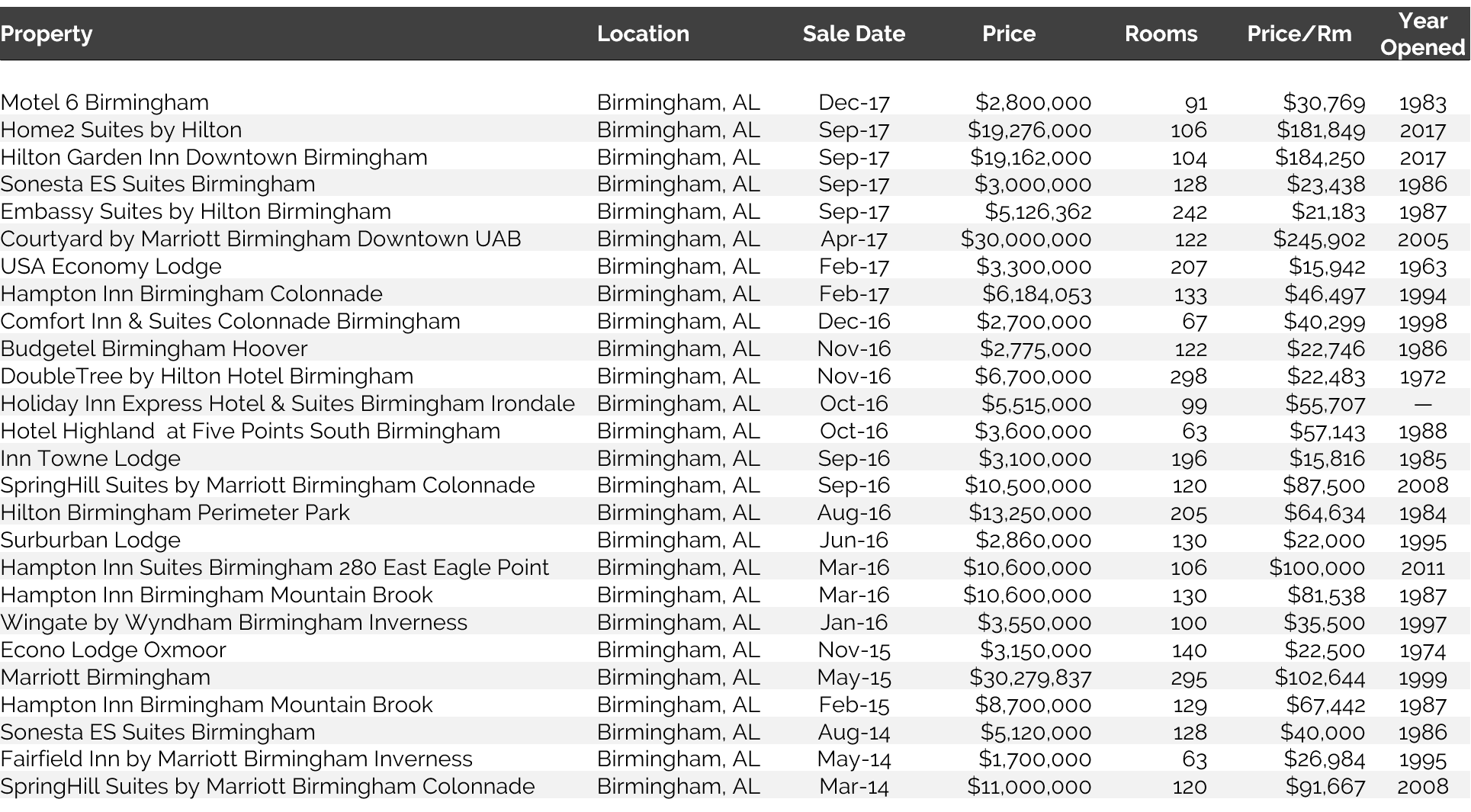
By Benjamin A. Levin
Birmingham’s economy is largely driven by the healthcare sector, with top employers such as the UAB Health System, Baptist Health System, and St. Vincent's Health System, whose hospitals and clinics are expected to change their name to Ascension. The name change is part of a greater effort to coordinate healthcare efforts across the entire Ascension system, which is the largest chain of Catholic hospitals in the world. The UAB Healthcare System is also undergoing some changes. U.S. News & World Report’s top ranked hospital in Alabama added seven operating rooms to the Callahan Eye Hospital in April 2017, while in August 2017, a new, 60,000-square-foot expansion of the John N. Whitaker Building opened. Known as the Whitaker Clinic, the new facility includes primary care, dermatology, podiatry, and rheumatology clinics. Additionally, the Ronald McDonald House Charities of Alabama's three-story, 28,543-square-foot addition opened in January 2018. The healthcare sector is the largest demand driver for hotels in and around Downtown Birmingham, with year-round demand driven by patients, relatives of patients, doctors, and pharmaceutical sales representatives.
Birmingham is also home to the University of Alabama at Birmingham (UAB), which reported a record student enrollment of 20,902 for the Fall 2017 semester. UAB has an estimated annual economic impact of more than $5 billion on the state of Alabama and is highly renowned for its medical research and natural sciences programs. UAB offers over 140 degrees at baccalaureate, master's, and doctoral levels. The UAB Hospital is the only Level I trauma center in Alabama verified by the American College of Surgeons Committee. Moreover, a $32-million, 72,000-square-foot expansion of the UAB School of Nursing began in October 2016, with completion scheduled for August 2018. Considering its growing enrollment, UAB will often sell out the downtown market on peak weekends, particularly during graduation and homecoming. The University also contributes to the market’s meeting and group segment, with demand driven largely by sporting events associated with its 17 collegiate sports teams.
Mercedes-Benz U.S. International (MBUSI), a subsidiary of Mercedes-Benz USA, is one of the largest exporters in the state of Alabama and has operated a factory in nearby Vance since 1997. Because of several expansion projects, the factory has grown to over four million square feet. The plant currently produces the Mercedes GLE- and GLS-class SUVs, the C-class sedan, and the GLE Coupe. In September 2017, Mercedes-Benz announced plans for a $1-billion expansion at the campus. New facilities will allow the plant to produce electric automobiles and will include a new, one-million-square-foot battery plant. Additionally, Mercedes is building a new global logistics center (opening 2019) and after-sales center less than five miles from the existing plant (opening 2020). Given the continual growth of the Mercedes-Benz plant, local hotels have benefited from a variety of engineers and related workers staying in the market, often for extended periods of time. The plant also supports numerous ancillary companies that contribute modest amounts of commercial demand to the local hotels.
Recent Developments
Completed in early 2017, the Thomas Jefferson Tower opened following a $30-million renovation. The building now features 96 apartments, street-level retail space, a high-end restaurant, and a ballroom. Originally opened as a hotel, the Thomas Jefferson Tower was one of the first redevelopment projects to utilize the state’s historic tax-credit program.
Another project that benefitted from the state’s historic tax credit was the redevelopment of the former Pizitz department store, which had remained vacant since 1988. In 2017, following a $70-million renovation, The Pizitz building reopened. Highlighted by Birmingham’s first open-concept food hall, the mixed-use development also features 143 apartments and 13,000 square feet of office space.
In December 2017, the popular entertainment and event venue, Topgolf, opened its 37th location in Downtown Birmingham. Located near the BJCC and Uptown Birmingham entertainment district, Topgolf provides the market with a top-flight leisure attraction, which is expected to contribute to stronger meeting and group demand levels for the BJCC. Additionally, the 65,000-square-foot facility created roughly 500 new jobs for Jefferson County.
In early 2018, Jefferson County committed to finance $30 million, while the City of Birmingham voted in favor of a resolution to contribute $90 million ($3 million annually over 30 years) toward the construction of a new, $174-million, 45,000-seat, open-air stadium adjacent to the BJCC, as well as renovations to Legacy Arena and an outdoor plaza. The remaining funding is expected to come from a mix of contributions, including a 3% rental car tax and a $4-million annual lease agreement with UAB, as well as a $10.7-million contribution from the BJCC Authority. Officials are hopeful that the new stadium will be open by the time Birmingham hosts the 2021 World Games. In addition to UAB football games, the stadium will also host Division 1 bowl and neutral-site football games, soccer games, outdoor concerts, and trade shows, among other events. The stadium, along with the upgrades to Legacy Arena and the outdoor plaza, is part of the BJCC’s 20-year, $300-million master plan.
Birmingham’s new upper-upscale segment
Prior to 2015, the Birmingham market was largely void of an upper-upscale boutique hotel, but the opening of the Grand Bohemian in Mountain Brook quickly changed this reality. The Grand Bohemian was very well received in the market, serving a previously underserviced niche. Since the opening of the Grand Bohemian, two more high-end boutique properties have opened in the market. The Redmont Hotel reopened as part of Hilton’s Curio Collection in 2016, while the former Empire Building, with help from Alabama’s historic tax-credit program, opened as the Elyton Hotel, an Autograph Collection affiliate. Birmingham’s new upper-upscale segment is not showing any signs of slowing down. The Hotel Highland is undergoing a significant renovation to convert to a Hotel Indigo, slated for the spring of 2018, and a second Curio Collection hotel is planned for development in Homewood. Moreover, the former Protective Life Building in Downtown Birmingham sold in November 2017. The vacant office building will reportedly be redeveloped into another upper-upscale hotel, with construction slated to begin in the summer of 2018. The recently sold 193,000-square-foot Brown Marx Building will also likely have a high-rated hotel component included in its redevelopment.
Recent transactions
Following limited transaction activity in 2014 and 2015, a significant increase in transaction activity occurred in 2016. Notable sales that year included the DoubleTree by Hilton in Downtown Birmingham, which was sold to the University of Alabama at Birmingham (UAB) with plans to be converted to a full-service Hilton following a property-wide renovation, and the Hotel Highland, which is in the process of undergoing a renovation and conversion to a Hotel Indigo. UAB purchased a second hotel in 2017, the Courtyard by Marriott in Downtown Birmingham, which sold for a record price in the market. Birmingham’s first dual-branded hotel, the Hilton Garden Inn/Home2 Suites by Hilton, also sold just months after its opening.
Outlook
With numerous mixed-use developments recently completed or under construction, Birmingham’s renaissance is showing no signs of slowing down. From luxury condominiums, high-end office space, upper-upscale hotels, and a variety of well-regarded dining and entertainment options, Birmingham is well on its way to establishing itself as a top-tier destination in the Southeast. Market-wide average rate (ADR) levels are anticipated to continue to increase in the near future, while occupancy levels are expected to decline slightly given the recent and upcoming influx of new supply.



